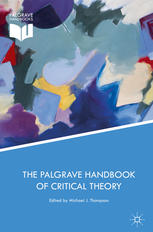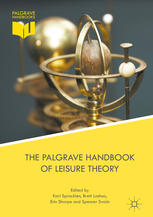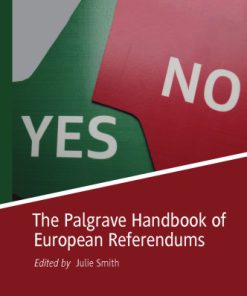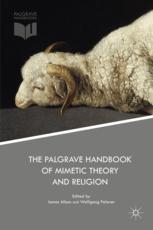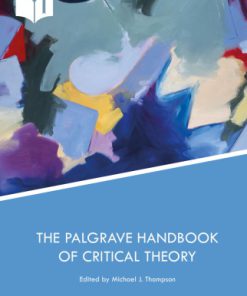The Palgrave Handbook of Leisure Theory Karl Spracklen
$50.00 Original price was: $50.00.$25.00Current price is: $25.00.
This completed downloadable of The Palgrave Handbook of Leisure Theory Karl Spracklen .
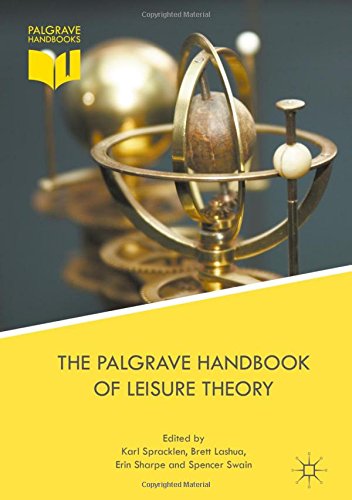
Instant downloaded The Palgrave Handbook of Leisure Theory Karl Spracklen pdf docx epub after payment.
Product details:
- ISBN-10 : 1137564792
- ISBN-13 : 9781137564795
- Author : Karl Spracklen
Table of contents:
Notes on Contributors
List of Figures
List of Tables
Introduction to the Palgrave Handbook of Leisure Theory
Preamble
Structure and Content
A Note on Leisure
References
Part I: Traditional Theories of Leisure
Introduction
Islam and Leisure
Leisure in the Islamic Tradition
Muslim Youths’ Leisure Participation in Diaspora
Leisure Facilitation by the Public or by the Muslim Communities?
Seeking “Halal Leisure”
References
Centring Leisure: A Hindu View of Leisure
Concept of Freedom in Hinduism
Methodology
Analysis of the Three States of Consciousness
The Four Great Aspirations
The Four Stages of Life
Objective of Leisure
Needed: A Critical Theory of Leisure
References
Listening to Nineteenth-Century Kanaka ʻŌiwi Voices; Re-imagining the Possibilities for Leisure
Comparative Method: A Word About Translation
Brief Summary of Context: The Hawaiian Kingdom 1874–1891
Comparative Method: Western Leisure Concepts or “The Hinge”
Comparative Method: Poni Mōʻī and Jubilee
Nineteenth-Century Leisure Responds
Rectification and Conclusion
References
Leisure in Latin America: A Conceptual Analysis
Introduction
Leisure Understandings of Latin American Interviewed
Final Considerations
References
The Sabbath as the Ideal Manifestation of Leisure in Traditional Jewish Thought
Introduction: From a Traditional Jewish Conception of Leisure to a Contemporary Jewish Approac
The Sabbath Between Tradition and Modernity: Features of the Sabbath in Modern Leisure Terms
Sabbath as Leisure
The Sabbath as a Time of Leisure
The Sabbath in Terms of Leisure Activities
Sabbath as a State of Mind
The Sabbath as a Value
Modern Challenges to the Sabbath
The Sabbath as an Educational Challenge for Promoting Intercultural Understanding and Tolerance
Summary and Discussion
References
Leisure Activities in Southeast Asia, from Pre-colonial Times to the Present
Pre-colonial Indigenous Leisure and Its Contemporary Manifestations
Colonial Leisure
Leisure as a Nation-Building Strategy
Globalisation and Leisure in Southeast Asia
Music and Performing Arts
Reviving Indigenous Leisure Activities
Conclusion
References
Sport, Leisure and Culture in Māori Society
Ethnography and Māori Sport and Leisure
The Revitalisation of Māori Sport and Games
Conclusions
References
Leisure Experience and Engaged Buddhism: Mindfulness as a Path to Freedom and Justice in Leisu
Mindfulness as the Path to Deepening Leisure Experiences
Noticing When We Are on Autopilot
Practicing Present Moment Awareness
Approaching with Beginner’s Mind to Understand
Growing Our Capacity to Sit with Discomfort, Enacting Patience as a Form of Wisdom Without Ju
Knowing Impermanence and Awakening Deeper Connection with Self, Others, and Environments (Interc
Letting Go (Non-attachment) to Thoughts, Feelings, or Situations We Want to Hold on to and O
Engaging Insight Leisure in Practice, Teaching, and Research in Leisure Studies
How Might We Embrace Buddhist Psychology?
How Might We Avoid Reducing Mindfulness Practice to Activity?
How Might We Avoid Reducing Mindfulness to Goal Orientation and Fixing Problems?
How Might We Shift Awareness from Doing to Explorations of Being?
How Might We Shift from Hedonism to Explore Meaning Making, Savoring, and Eudaimonia?
How Might We Create Conditions that Support Letting Go?
How Might We Embrace Paradox in Leisure Studies?
A Present Moment Awareness of Insight Leisure
References
Traditional Sport in Japan
Introduction (Preface)
Japanese Mythology and Sumo
An Outline of Japanese History and Culture
Sumo in Japanese Mythology
The History of Sumo
Traditional Sport in Japan
Sport for the Nobility
Japanese Archery
Horse Race and Equestrian Archery
Hunting and Takagari (Hawking)
Kemari (An Ancient Football Game Played in the Imperial Palace)
Dakyu (Ancient Japanese Polo)
Sport for the Common People
Tug-of-War
Chikara-Ishi (Lifting a Heavy Stone)
Festivals
The Birth and Philosophy of Budo
The Beginning of Budo
The Diffusion of Judo
The Founder of Judo, Jigoro Kano
The Spirit of Judo
Conclusion (Afterword)
Leisure and the Dao
What Is Daoism?
Wu Wei
Wu Yu
The Art of Leaving Things Undone
Desire to Not Be Needed
Jing Jie
So What Is Dao Leisure and What Leisure Pursuits Coincide with Dao Leisure?
The Two Questions
Is There a Dao of Leisure?
What Is the Daoist Relationship Between Work and Leisure?
Conclusion
References
“Have Leisure and Know that I Am God”: Christianity and Leisure
Biblical Themes and Passages Relevant to Leisure
Sabbath
Rest
Psalm 46:10
Biblical Themes Relevant to Leisure as Activity
Festivals
Feasts
Dance
Hospitality
Friendships
Leisure Practices in Luke’s Gospel
Work and Leisure in Ecclesiastes
2 Thessalonians 3:10
Christianity and Leisure Through Time: Historical Perspectives
Empirical Research on Christianity and Leisure
Conclusion
References
Part II: Rational Theories of Leisure
Leisure in Classical Greek Philosophy
References
John Locke: Recreation, Morality and Paternalism in Leisure Policy
Recreation and Morality
Locke, Empiricism, Paternalism and Recreation
Recreation, Paternalism and Morality in the Nineteenth and Twentieth Centuries
Conclusion
References
Rebuking the Enlightenment Establishments, Bourgeois and Aristocratic: Rousseau’s Ambivalence Ab
Polemical Contrasts
The Citizen
The Savage
Constructive Alternatives
The Villager-Citizen
The Art of Living
References
Contracting the Right to Roam
Introduction
Life Politics and Allemannsretten
Allemannsretten Versus the Green Leviathan
Allemannsretten and Justice as Sustainable Fairness
Towards an Inclusive and Sustainable Leisure Citizenship
Concluding Thoughts
References
Leisure and Radical Jacobinism
Introduction
The Enlightenment’s Radical Context: 1600–1700
Thomas Paine
Leisure in the Documents of the American Revolution
Leisure in the Documents of the French Revolution
The Failure of Radical Jacobinism
References
John Stuart Mill and Leisure
Utilitarianism
The Subjection of Women
Modern Applications of Mill
References
Unproductive Leisure and Resented Work: A Brief Incursion in Hegel (and in Nietzsche)
Introduction
The Absolute Idealism of Hegel
The Slave–Lord Dialectic: The Problem of Recognition
Desire and Work
Conclusion
References
John Dewey: Purposeful Play as Leisure
John Dewey
Labour and Leisure
Activity and Experience
Play and Unification
Back to Dewey in Key West
Concluding Remarks
References
Durkheim and Leisure
Introduction
Leisure as a Social Fact
Leisure and the Division of Labour
Leisure and the Sacred
Leisure and the Deviance (Anomy)
Durkheim Revisited
References
Why Veblen Matters: The Role of Status Seeking in Contemporary Leisure
Introduction
Emulation, Conspicuous Leisure, and Conspicuous Consumption
Necessity and Keeping Up Appearances
If It’s Expensive, It Must Be Good
Emulation and Collecting
The Leisure Class Transfigured
Conclusions
References
Max Weber and Leisure
Introduction
The Protestant Ethic and the Absence of Leisure
Weber’s Foundations
Building on Weber
Bureaucracy and the Rationalization of Leisure
Weber’s Foundations
Building on Weber
Social Inequality and Leisure: Class, Status, Party
Weber’s Foundations
Building on Weber
Conclusion
References
Flow Theory and Leisure
Introduction
Flow Theory and the Leisure Experience: Contributions and Critique
Flow Theory and Leisure Activities: Limitations and Extensions
Articulating a Tentative Ecology of Leisure Involvement
Concluding Remarks
References
Serious Leisure: Past, Present, and Possibilities
Introduction
Overview and Origins of Serious Leisure
Serious Leisure Defined
Serious Leisure as a Research Framework
Critiques of Serious Leisure
The Static Definition of Serious Leisure
Does Serious Leisure Constitute Theory?
Activity Focus of Serious Leisure
Ambiguity of Relationship Between Serious and Casual Leisure
The “Benefits” Focus of Serious Leisure
Is Serious Leisure Still Relevant?
References
Part III: Structural Theories of Leisure
Marx, Alienation and Dialectics Within Leisure
Alienation
Leisure and Alienation
Conclusion
References
The Dialectics of Work and Leisure in Marx, Lukács, and Lefebvre
References
“Let’s Murder the Moonlight!” Futurism, Anti-Humanism and Leisure
Introduction: Getting Back to the Futurists
Futurism
“Humanity Is Mediocre”: From Humanism Toward Anti-Humanism
Conclusion: Leisure and Futurism
References
The Frankfurt School, Leisure and Consumption
Introduction: The Problem with Marxism
History of the Frankfurt School and Critical Theory
The Culture Industry
Case Study: RuPaul’s Drag Race
Conclusions
References
Leisure, Instrumentality and Communicative Action
Introduction
Habermas in Context
The Public Sphere
Juridification
Communicative Rationality and Instrumentality
Leisure in the Work of Habermas
Communicative and Instrumental Leisure: Spracklen (2009, 2011, 2013, 2015)
References
Leisure and Hegemony
Introduction
Leisure as a Form of Control
Leisure and Work: Hegemony in Action
Counter Hegemony
Struggles/Gender Identity/Self-formation
Conclusion
References
Reclaiming the “F-word”: Structural Feminist Theories of Leisure
Structural Feminist Theories
Liberal Feminism: Reforming Gender Inequality
Mary Wollstonecraft: Educational Equality
Critiques of Liberal Feminism
Summary
Radical Feminism: Revolutionizing Patriarchy
Simone de Beauvoir: Women as The Second Sex
Critiques of Radical Feminism
Summary
Structural Feminist Critiques of Leisure
Health
Women’s Experiences of Infertility in a Pronatalist Society
Women’s Recovery from Depression
Physical Activity
History and Sociology of Women’s Sports
Women’s Ice Hockey and the Politics of Gender
Popular Culture
Young Women, Femininity, and Feminism
Young Men, Media Consumption, and Masculinity
Conclusion
References
A Critical Expansion of Theories on Race and Ethnicity in Leisure Studies
W.E.B. Du Bois: Theories of “The Veil” and “Double Consciousness”
Frantz Fanon: “Theory of Racialization” and “Theory of Colonial Identity”
Edward Said: “Theory of Orientalism”
Michèle Lamont: “Social Boundaries Theory”
John B. McConahay and Joseph C. Hough: “Symbolic Racism Theory”
Herbert Blalock: “Racial Threat Theory”
John Gaertner and Samuel Dovidio: “Aversive Racism Theory”
Kimberle Crenshaw: “Intersectional Theory”
Conclusion
References
Spasticus Auticus: Thinking About Disability, Culture and Leisure Beyond the “Walkie Talkies”
Disability, Leisure and Rebellion
Social and Historical Perspectives on Disability and Leisure
Popular Culture and the Politics of Disablement
Challenging Leisure Spaces: The Right to Be Included
Re-imagining Leisure: No Triumph and No Tragedy
References
Leisure, Media, and Consumption: The Flavour of Rock in Rio
Introduction
Media, Culture, Leisure
Consumption, Communication, and Leisure in Cities
Leisure as a Business Opportunity
The Experience Uniting Consumption and Leisure
Conclusions and Other Considerations
References
Leisure and “The Civilising Process”
Introduction
The Civilising Process: A Brief Outline
Leisure, the Civilising Process and Public Conversation
Leisure and the Civilising Process: The Quest for Excitement
The Civilising Process: It’s Here, It’s There, It’s…
References
The Politics of Leisure in Totalitarian Societies
Introduction
Understanding the Role of Leisure in the Construction of Totalitarian Politics
Reconsidering the Politics of Leisure in Totalitarianism: Conclusions
References
Leisure, Community, and the Stranger
Introduction
Identity
The Predefined Identity
Reassembling the Puzzle of Identity
The Realm of Leisure
Stranger
A Clearly Defined Mental Construct
Can Reduced Distances Reduce Strangeness?
Stranger or Strangeness?
Conclusion
References
Part IV: Post-structural Theories of Leisure
Introduction
References
Postmodernity and Leisure
Introduction
Lyotard and the Postmodern Condition
Paralogy, the Sublime and Leisure
But What If “We Have Never Been Modern?”: Latour and the Amodern
Actor Network Theory and Leisure
Conclusion
References
Leisure, Risk and Reflexivity
Introduction
Beck’s Risk Society
Leisure and Risk
Conclusions and Questions
References
Thinking Through Post-structuralism in Leisure Studies: A Detour Around “Proper” Humanist Know
What Are the Legacies of Humanism?
Complicating Humanism
What Must We Consider When Thinking Through Post-structuralism?
Accessibility, Transparency, Clarity
What Is the Post in POST-structuralism?
What Might Post-structuralism Be?
Critiques of Relativism
Post-structuralism Versus Postmodernism
Deconstructing Humanist Leisure Studies Through Post-structuralism
Deconstructing Our Common Sense Attachments
Asking Questions Differently
The Ethical Imperative to “Keep Reading” and Speak Outside Ourselves
References
Who Should Inhabit Leisure? Disability, Embodiment, and Access to Leisure
Disability Defined
The Moving Target of Disability
Historical
Political
Theoretical Versions
Disability and Leisure
A Paradigm Shift Using Social Justice
Framing Leisure in Principles of Social Justice
Summary
References
Leisure and Diaspora
Introduction
Diaspora: Key Ideas, Phases and Critique
Leisure Identities and Practices in the Context of Transnational Human Movement
Situating Leisure Within Diasporas and Diasporas Within Leisure
References
You Make Me Feel Mighty Real: Hyperreality and Leisure Theory
Introduction
People also search:
what is the theory of leisure class
can theory become a law
how leisure affects mental health
what theory did skinner develop
why should leisure time be scheduled
You may also like…
Politics & Philosophy
The Palgrave Handbook of Critical Theory 1st Edition Michael J. Thompson (Eds.)
Politics & Philosophy - Social Sciences
Business & Economics
The Palgrave Handbook of Leisure Theory 1st Edition Karl Spracklen
Business & Economics
The Palgrave Handbook Of Workplace Innovation Adela Mcmurray
Politics & Philosophy
Politics & Philosophy - General & Miscellaneous Philosophy
The Palgrave Handbook of Mimetic Theory and Religion 1st Edition James Alison
Politics & Philosophy - Social Sciences





